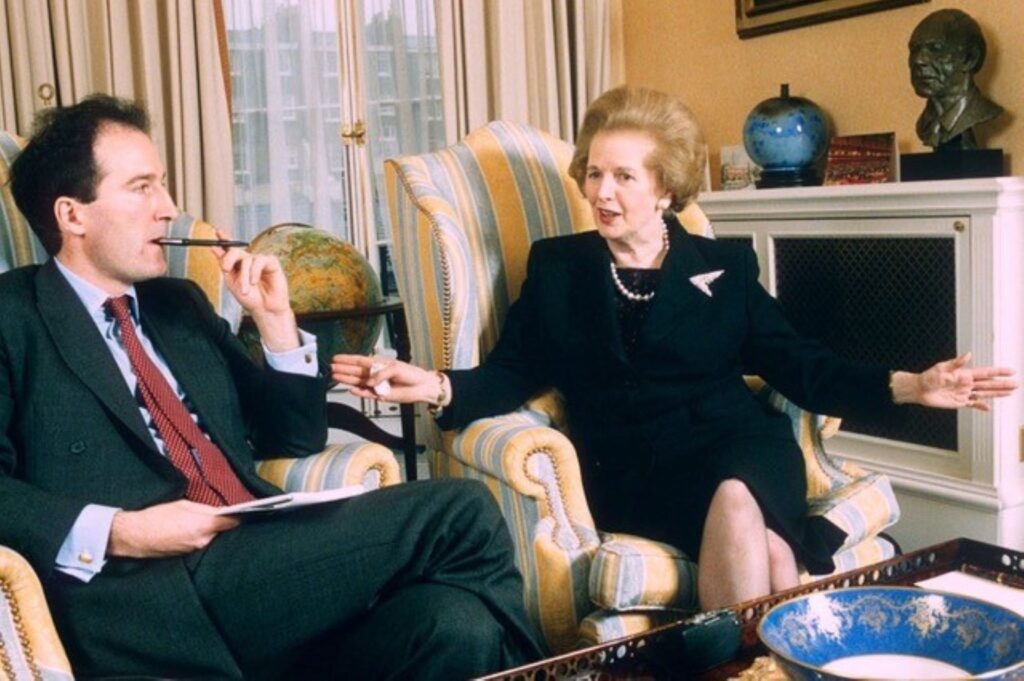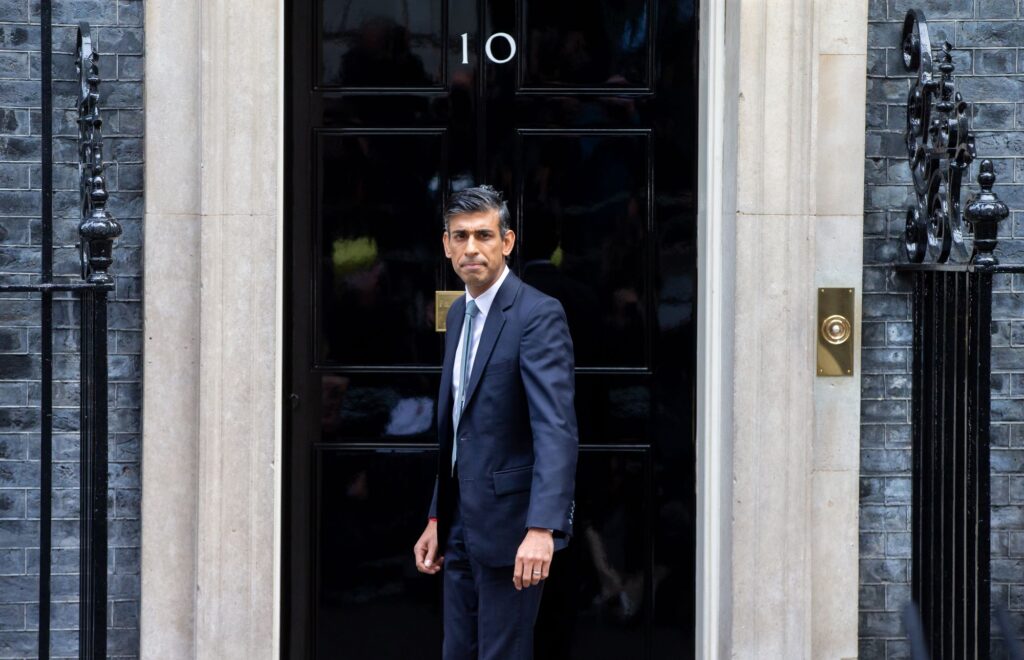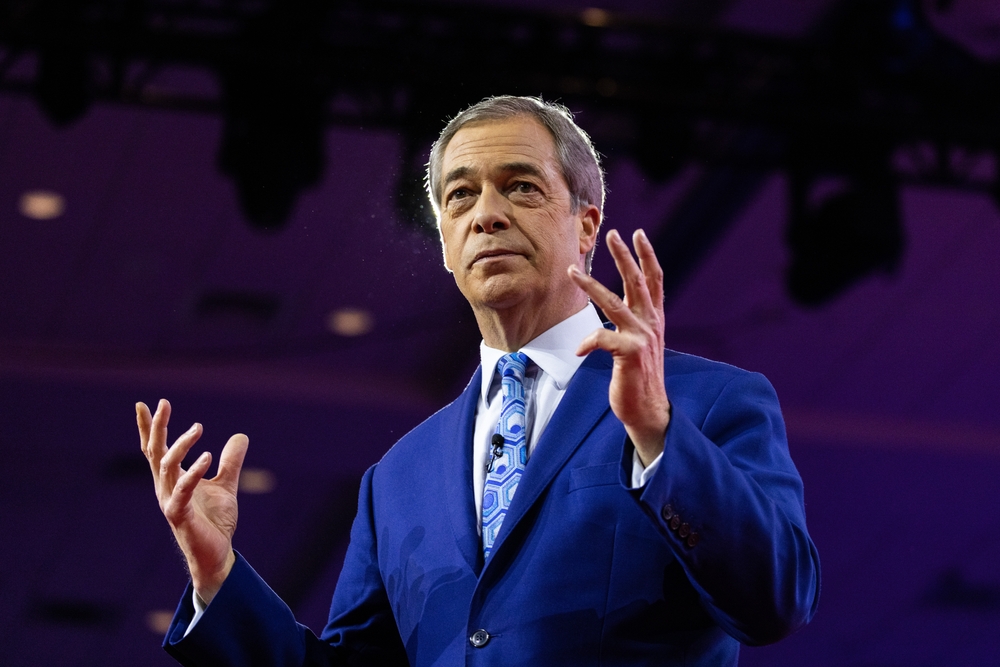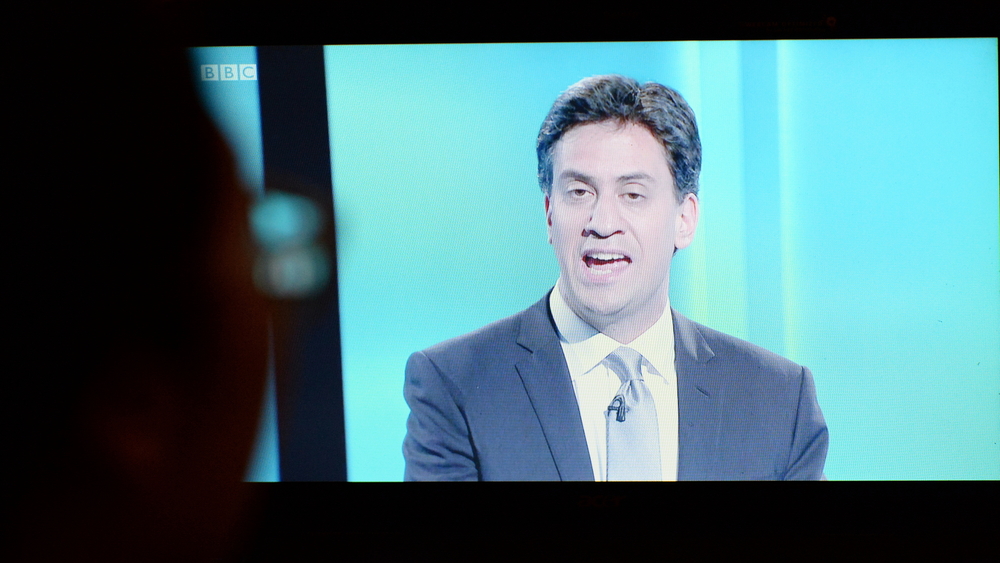
When you get it right, it can be an election winner. Tony Blair captured the mood of ‘Cool Britannia’ to sweep to victory in 1997. Thatcher’s quip that any mother who could look after children all night and still function the next day could handle being PM, endeared her to the nation in 1979. Clement Attlee’s rallying cry that Britain needed to ‘Face the Future Together’ captured a post-war desire for a change to pull off a surprise victory in 1945.
But there’s also the risk of gaffes and the gotchas where the mask seems to slip, and the public are turned off. Gordon Brown’s catastrophic ‘bigotgate’ hot-mic moment shifted the mood in 2010. Neil Kinnock’s naff-dad cheer of ‘All right, All Right’ days before the 1992 vote made the nation collectively cringe. Sometimes moments are constructed by the press. The Sun’s ‘Save Our Bacon’ front page picture of Ed Miliband eating a sarnie was part of a targeted attack to limit engagement with his ideas. All cost Labour dearly.
And then there’s the 2024 election campaign, which will go down in political history as the one where the PM’s boundless blunders took even the most hardened hacks by surprise. So numerous you might have already forgotten some, each howler in its own way seems to illustrate further that hapless Sunak is out of his depth and out of touch.

The schoolboy-like excitement about a rare trip on a train, followed by a helicopter ride home. The visit to the Titanic shipyard to announce new policies. Even the election announcement was one for the ages. Drenched by rain and drowned out by New Labour anthem Things Could Only Get Better, he declared himself the only person with a plan. Just not a plan to be heard apparently. Or stay dry.
And then, quite astonishingly, he knocked it out of the park with what may now be remembered as the greatest gaffe of them all. He skipped the international leaders 80th anniversary of D-Day commemoration — likely the last ever to include veterans who fought that day — to do a TV interview.
- Read more: How can we hold regional mayors to account?
- Read more: Focus on exports can drive region’s growth
He could have stood shoulder-to-shoulder with the French and US presidents to pay tribute to how allies worked together to save the free world. He could have looked like a statesman. He could have been present at a moment in history that subsequent generations will watch and remember. Most important of all, he should have desperately wanted to be there, because, well, who wouldn’t want to be part of such an incredible moment? It was a privilege most of us would have cherished. Instead, he infuriated, well, pretty much everyone.

His choice seemed to illustrate what his critics have long claimed — that his sense of privilege works differently to most folks. Sadly, it also offered his rival for right wing voters Nigel Farage the opportunity for a characteristic dog-whistle. He declared that Rishi Sunak did not understand ‘our culture’ or ‘our history’ and was later questioned by BBC’s Laura Kuenssberg if he was referring to the fact that the PM is the son of immigrants.
Personality politics is not a recent invention. From the earliest moments of democratic campaigning in the 18th century, political leaders such as Whig Charles Fox used their charm and pulling power — in his case a penchant for fashion and a way with the ladies — to pull in crowds. He also was the first politician to directly harness the power of celebrities and asked fashionista and major influencer of her time Georgiana, Duchess of Devonshire to appear with him at hustings. This forever shaped relationships between democratic politics and celebrity culture.
But since 2015, which was hailed as the UK’s first social media election, there have been shifts in power between politicians, public and press. A group of teenage girls who dubbed themselves ‘The Milifandom’ and embraced Ed Miliband’s geek chic aesthetic provided the most effective counter to the right wing press’ attack on him. While Nigel Farage did not win a seat, he used social media to set the narrative and scene for the Brexit campaign the following year through expanding his own public persona as an ‘everyday British bloke’ who distrusted establishment institutions.

My research found that his Facebook page ‘likes’ during the short campaign were almost triple those of David Cameron and the number of people talking about him on the site was often more than all other smaller party leaders combined.
The connections between this and Trump’s ‘self-brand’ the following year are easily identifiable. They both used techniques of ‘digital dog-whistling’, nationalistic and anti-immigrant discourse linked to a central pledge that they will ‘Make Britain/America Great Again’.
- Read more: More questions than answers on social care
- Read more: Jill Halfpenny – Reimagining a life after unimaginable loss
In their world of political persona, the party is of decreasing significance and individualised success is better judged by clicks, shares and likes than by opinion polls. This approach enables campaign teams to produce content that allows instant identification when scrolling through social media timelines, rather than prolonged thought.
Now the new power of the public and this type of rhetoric has come together against Rishi Sunak. Outrage about his D-Day decision unfolded on social media first, then a couple of smaller news pieces and then a full tidal wave of press condemnation as the strength of feeling was understood.

There are lessons here around optics, but these are really about authenticity and character. Keir Starmer’s participation in D-Day events, seemed to reflect genuine gratitude. He side-stepped the outrage about the PM’s decision and instead stayed focused on the veterans he met and their sacrifice. It reflected a ‘steady as it goes’ approach, where there’s less chance of real excitement like there was with Blair, but there’s also reduced risk of a catastrophic faux pas.
Meanwhile amidst it all, slowly on the wings, another type of personality politics has emerged. There’s novelty in how Liberal Democrat Leader Ed Davey appears to be conducting less a political campaign and more an attempt at a Duke of Edinburgh Bronze Award. He’s setting the gaffes up himself and letting us laugh with him. We’ve seen him fall off a paddle board, sing We Will Rock You and play the drums badly, cascade down a slip and slide and all the time with a wide smile.
As Labour tiptoe cautiously towards the finish line, the Tory doom spiral spins on and Farage builds his social media presence and sets the stage for his next political disruption — an apparent coup of the Tory party — I’m finding unexpected joy in watching this jolly nice man have a jolly nice time. It is the levity this campaign needs.













3 thoughts on “Personality politics is a slippery beast”
No mention of the greatest gaffe of them all……the Labour Party choosing ‘’ Oh Jeremy Corbyn ‘’ as the party leader and expecting anyone to vote for him or the party.
Re Ed(die) the LibDem turned sort of Eddie the Eagle: I enjoy the sending-up of himself, doing on purpose what other manifesto-wielding serious lipped would-be leaders serendipitously happen to do but only results in their faces turning red followed by apologies or excuses.
You’ve got to laugh (or maybe cry) when custard-pie soundbite plans and pledges – and I include LibDem’s – fail to splatter the IFS, or BBC’s Nick Robinson for that matter.
Back to our Ed… one former comedian has proved they’re just not in it for laughs: Volodymyr Zelenskyy.
What a sorry state of affairs. All of it conducted like a television comedy drama that is of little interest to the public and is quite probably scripted to keep the majority of people uninterested.
As for Jeremy Corbyn he was backed by 40% of the electorate in the 2017 general election. More going by the opinion polls than will vote for the toolmaker’s son who promises nothing and will give the people less than nothing.
Democracy in Britain is less than one hundred years old and since 1979 has been an half democracy at best. Is it any wonder that the country is in such a woeful state and that the news system has collapsed due to systematic lying.
This country is heading for a wake up call as the drums are beating for another world war. Incompetent politicians have a lot to answer for. Telling the truth is a way out of the fire and this election is giving the electorate plenty of alternatives to the three parties of state who are guilty of ruining the country at national and local level. Let it be the last televised sham!